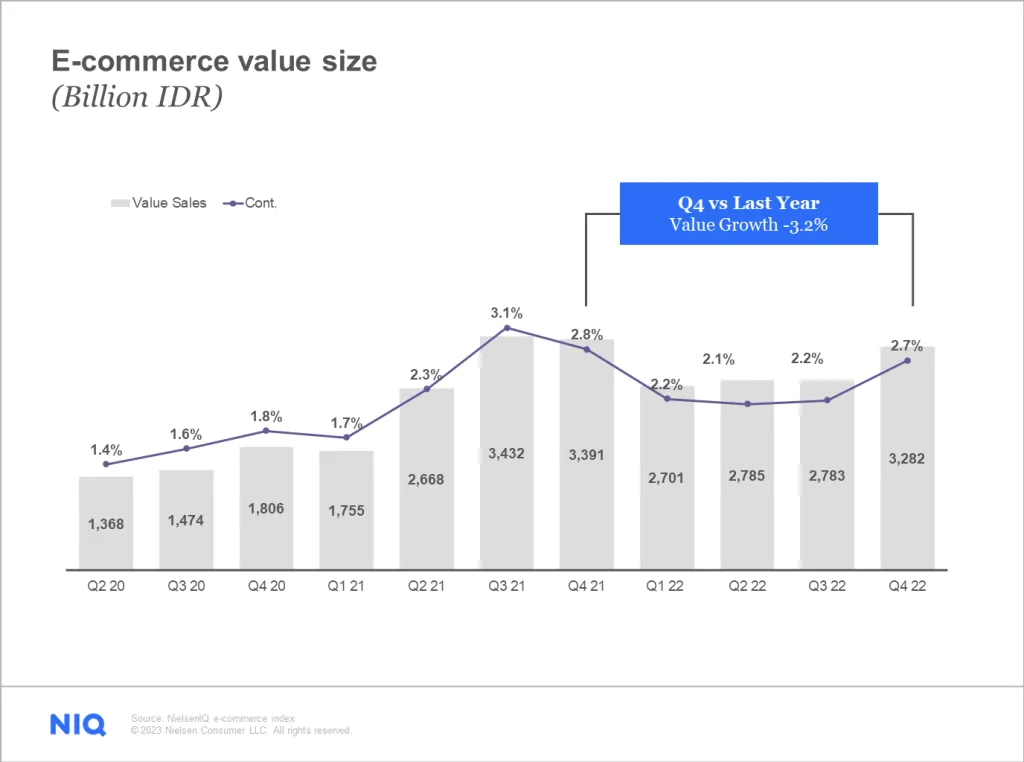The Indonesian consumer landscape is evolving rapidly, influenced by digital transformation, economic shifts, and changing lifestyle priorities. As businesses seek to navigate these changes, understanding Indonesia Consumer Behavior Trends is essential. Let's get into it!
Understanding Indonesia Consumer Behavior Trends: The Rise of E-Commerce and Mobile Shopping

Indonesia's e-commerce market is projected to reach $82 billion by 2025, reflecting the increasing reliance on digital platforms. Internet penetration and a growing middle class are major drivers of this shift. Notably, 73% of e-commerce transactions in Indonesia occur via mobile devices, highlighting a strong preference for mobile shopping. Platforms like Shopee, Tokopedia, and Lazada have capitalized on this trend by optimizing their apps for seamless mobile experiences, including one-click payments and live commerce features.
Read Also: Digital Wallets & Indonesia Digital Payment Adoption Explained
Expanding Middle Class and Its Impact
By 2030, Indonesia’s middle class is expected to reach 141 million people, with annual household consumption projected to exceed $2.5 trillion. This demographic shift signifies greater purchasing power and evolving spending habits. As disposable income rises, consumers are prioritizing quality, brand loyalty, and digital convenience in their purchasing decisions.
For example, demand for premium electronics (like smartphones and smart home devices) has surged, with brands like Samsung and Xiaomi introducing installment plans to cater to aspirational buyers. Meanwhile, subscription-based services—from streaming (Vidio, Netflix) to grocery delivery (Sayurbox)—are thriving as consumers seek hassle-free, recurring solutions.
Brands that emphasize customer loyalty programs and personalized shopping experiences (e.g., Zalora’s AI-driven recommendations) are gaining an edge in this competitive market.
Value-Conscious Spending Indonesia Consumer Behavior Trends
With economic uncertainties, Indonesian consumers are becoming more cautious about spending. There has been a 30% increase in searches related to "pay later" options and financing plans, reflecting a preference for flexible payment solutions. This behavior signals opportunities for businesses to offer installment plans and discounts to attract budget-conscious consumers.
Health and Wellness as a Priority
Health-conscious consumer behavior is on the rise, with 70% of consumers prioritizing wellness and planning for their physical health. Organic food, fitness products, and wellness services are experiencing increased demand. The sector is expected to grow at a compound annual growth rate (CAGR) of 15% by 2025, indicating long-term consumer interest in health and well-being. Businesses can tap into this trend by offering health-centric loyalty rewards (e.g., discounts for gym memberships) or functional food products (e.g., fortified snacks).
Sustainability Awareness and Ethical Consumption in Indonesia Consumer Behavior Trends
Sustainability is becoming a key factor in purchasing decisions. 62% of Indonesian consumers are willing to pay more for eco-friendly and ethically sourced products. This shift presents an opportunity for businesses to align with sustainable practices, from using recyclable packaging to promoting ethical supply chains.
Read Also: The Big Push for Sustainable Infrastructure Projects Indonesia
Local Product Preference and National Pride
Supply chain disruptions during the pandemic have strengthened consumer preference for local brands. Shoppers are increasingly supporting domestic products due to both necessity and national pride. This trend offers local businesses an advantage, emphasizing the importance of highlighting homegrown quality and authenticity in marketing strategies.
Indonesia Consumer Behavior Trends are shifting toward digital commerce, mobile-first shopping, value-conscious spending, health-conscious purchasing, and sustainability-driven decisions. Businesses must adapt by leveraging technology, offering flexible payment options, prioritizing wellness-related products, and embracing sustainable practices. With these insights, companies can better position themselves for success in Indonesia’s dynamic and expanding market.







